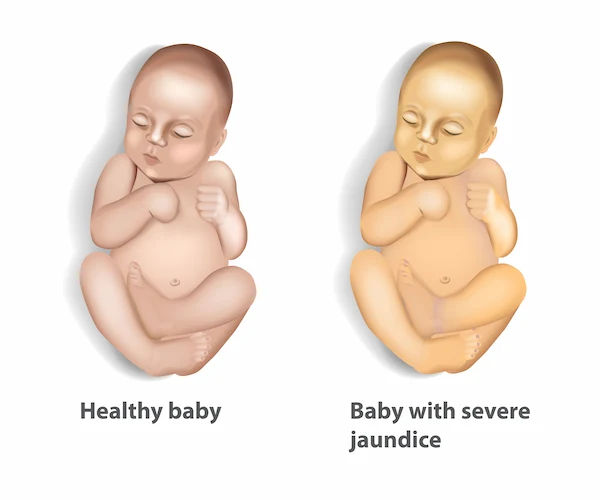Symptoms and Signs of Conjunctivitis and Eye Flu
Explore the symptoms and signs of conjunctivitis and eye flu, including redness, irritation, tearing, and discharge. Understand how to identify these conditions early for timely treatment and prevention.

Written by Dr. Shaik Abdul Kalam
Reviewed by Dr. Mohammed Kamran MBBS, FIDM
Last updated on 25th Aug, 2025

Introduction
Our eyes are one of the most sensitive and vital parts of our body, and when they get irritated or infected, it can be quite uncomfortable. Conjunctivitis (commonly known as "pink eye") and eye flu are common eye conditions that many people experience at some point in their lives. If you've ever had red, itchy, or watery eyes, you might have had one of these conditions.
In this article, we’ll discuss the symptoms, signs, causes, and simple ways to manage conjunctivitis and eye flu so you can take better care of your eyes.
What Is Conjunctivitis and Eye Flu?
Conjunctivitis is the inflammation of the conjunctiva, the thin, clear tissue covering the white part of the eye and the inner eyelids. It can be caused by viruses, bacteria, allergies, or irritants like smoke or dust.
Eye flu (viral conjunctivitis) is a type of conjunctivitis caused by viruses, often the same ones that cause colds. It spreads easily, especially in crowded places or through direct contact.
Both conditions can make your eyes red, itchy, and uncomfortable, but knowing the differences can help in managing them better.
Common Symptoms and Signs
Here are some of the common symptoms and signs
1. Red or Pink Eyes
The whites of your eyes turn pink or red due to inflammation.
Blood vessels become more visible, giving a "bloodshot" appearance.
2. Itching and Irritation
Allergic conjunctivitis causes intense itching, while viral/bacterial types may feel gritty or sore.
Rubbing worsens the irritation.
3. Watery or Sticky Discharge
Viral conjunctivitis: Watery discharge (clear or slightly white).
Bacterial conjunctivitis: Thick, yellow/green discharge that may crust overnight.
Allergic conjunctivitis: Excessive tearing without thick discharge.
4. Swollen Eyelids
Eyelids may puff up, making it hard to open your eyes fully.
5. Sensitivity to Light (Photophobia)
Bright lights may cause discomfort or pain.
6. Blurred Vision (Temporary)
Discharge or swelling may cause slight blurriness, which clears after blinking or cleaning the eyes.
7. Feeling Like Something Is in the Eye
A gritty or sandy sensation is common, making you want to rub your eyes.
Consult Top Specialists for Personalised Tips
What Causes Conjunctivitis and Eye Flu?
Here are some causes of conjunctivitis and eye flu:
1. Viral Conjunctivitis (Eye Flu)
Caused by viruses (e.g., adenovirus, common cold virus).
Highly contagious—spreads through coughing, sneezing, or touching infected surfaces.
Often affects both eyes.
2. Bacterial Conjunctivitis
Caused by bacteria (e.g., staphylococcus or streptococcus).
Spreads through direct contact with infected hands, towels, or makeup.
Produces thick, sticky discharge.
3. Allergic Conjunctivitis
Triggered by allergens like pollen, dust, or pet dander.
Not contagious but can be seasonal or chronic.
Often comes with sneezing and a runny nose.
4. Irritant Conjunctivitis
Caused by smoke, chlorine (from swimming pools), or harsh chemicals.
Usually clears up once the irritant is removed.
How to Manage and Treat Conjunctivitis?
1. For Viral Conjunctivitis (Eye Flu)
No specific treatment—usually resolves in 1-2 weeks.
Use cold compresses to soothe irritation.
Avoid rubbing your eyes to prevent spreading.
Wash hands frequently and avoid sharing towels or pillows.
2. For Bacterial Conjunctivitis
Antibiotic eye drops or ointments (prescribed by a doctor).
Clean discharge gently with warm water and a clean cloth.
Complete the full course of antibiotics even if symptoms improve.
3. For Allergic Conjunctivitis
Antihistamine eye drops (over-the-counter or prescribed).
Cold compresses to reduce swelling.
Avoid allergens—keep windows closed during high pollen seasons.
4. General Care Tips
Avoid wearing contact lenses until fully healed.
Do not share eye makeup or towels.
Wash pillowcases and face towels in hot water.
When to See a Doctor?
Most cases of conjunctivitis improve on their own, but consult a doctor if:
Eye pain is severe.
Vision becomes significantly blurred.
Symptoms worsen after 3-4 days.
Light sensitivity increases.
There is thick pus-like discharge (possible bacterial infection).
If you're experiencing persistent symptoms, you can book an eye consultation with an Apollo24|7 specialist for expert advice and treatment.
Preventing Conjunctivitis and Eye Flu
Wash hands often with soap and water.
Avoid touching your eyes with unwashed hands.
Use clean towels and tissues for wiping your face.
Replace eye makeup every 3-6 months.
Wear sunglasses to protect against dust and allergens.
Conclusion
Conjunctivitis and eye flu can be annoying, but with the right care and precautions, they usually clear up without serious issues. If your symptoms persist or worsen, don’t hesitate to seek medical help.
For quick and reliable eye care, you can schedule an online consultation or book an eye test through Apollo24|7—because your vision matters!
Consult Top Ophthalmologists
Consult Top Specialists for Personalised Tips

Dr. Sujit Pahari
Ophthalmologist
22 Years • MBBS, DNB, DOMS Ophthalmologist/ Eye Surgeon. FIC (Ophthal).
Bilaspur
Apollo Hospitals Seepat Road, Bilaspur

Dr Rajesh Rastogi
Ophthalmologist
33 Years • MBBS, MS Ophthalmology
New Delhi
Rotary Diabetic Centre, New Delhi
Dr. S Venkateswaran
Ophthalmologist
35 Years • MBBS, PGD (OPTHALMOLOGY)
Tiruvannamalai
Shiva Eye And General Hospital, Tiruvannamalai
Dr. Padmini S
Ophthalmologist
4 Years • MBBS,MS
Bengaluru
Apollo Medical Center, Marathahalli, Bengaluru
Dr. V.chittibabu
Ophthalmologist
30 Years • MBBS, MS
Vellore
Krupa Eye Clinic, Vellore
Consult Top Ophthalmologists

Dr. Sujit Pahari
Ophthalmologist
22 Years • MBBS, DNB, DOMS Ophthalmologist/ Eye Surgeon. FIC (Ophthal).
Bilaspur
Apollo Hospitals Seepat Road, Bilaspur

Dr Rajesh Rastogi
Ophthalmologist
33 Years • MBBS, MS Ophthalmology
New Delhi
Rotary Diabetic Centre, New Delhi
Dr. S Venkateswaran
Ophthalmologist
35 Years • MBBS, PGD (OPTHALMOLOGY)
Tiruvannamalai
Shiva Eye And General Hospital, Tiruvannamalai
Dr. Padmini S
Ophthalmologist
4 Years • MBBS,MS
Bengaluru
Apollo Medical Center, Marathahalli, Bengaluru
Dr. V.chittibabu
Ophthalmologist
30 Years • MBBS, MS
Vellore
Krupa Eye Clinic, Vellore

.webp)


